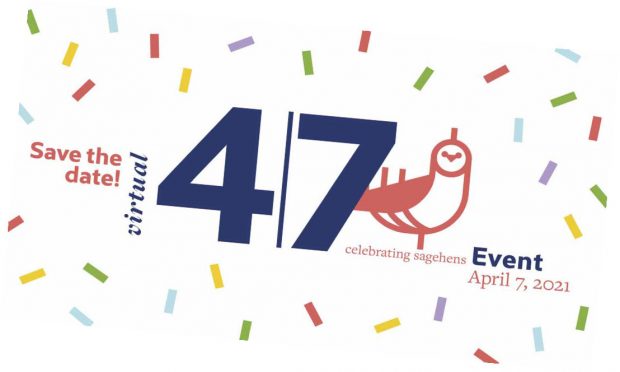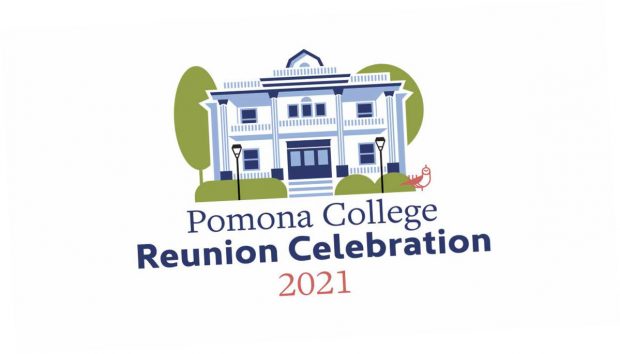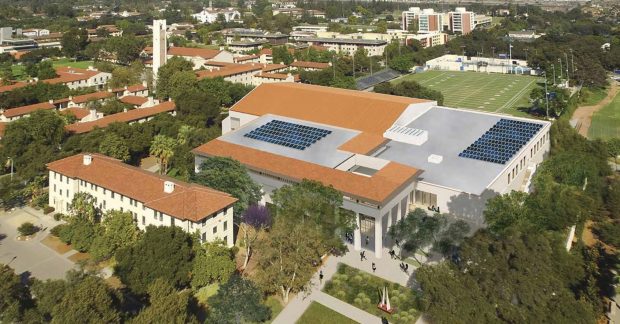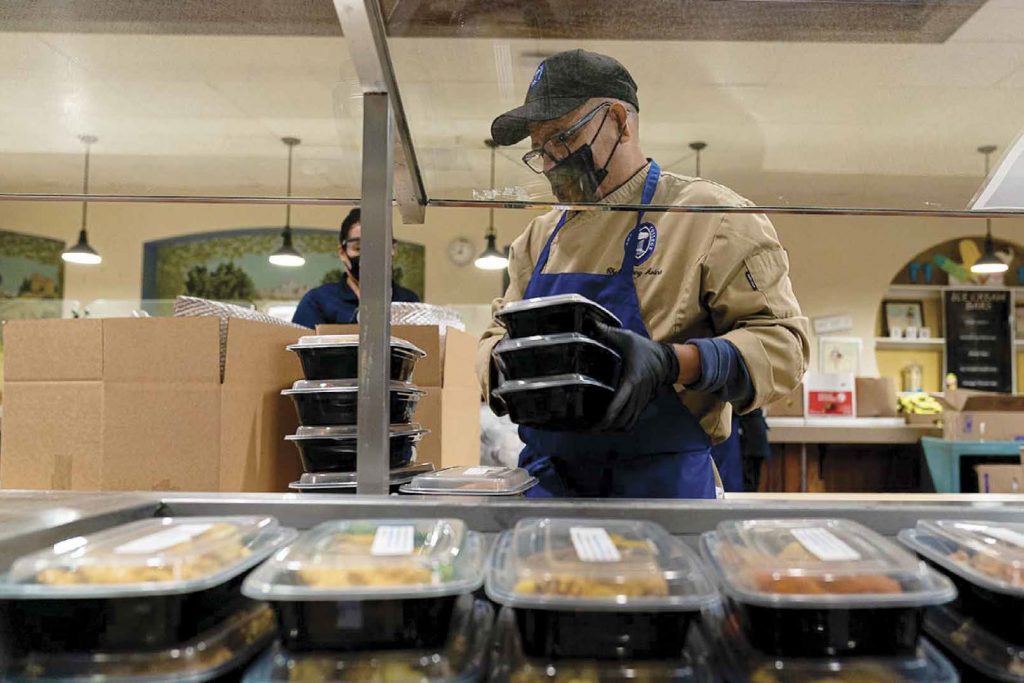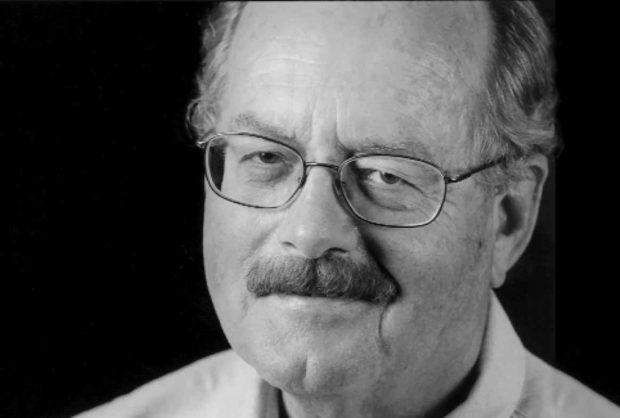
William Wirtz
Emeritus Professor of Zoology and Biology
1937–2020
William Wirtz, emeritus professor of zoology and biology, died at home on Dec. 24, 2020, after a long illness. He was 83.
Wirtz was born in New Jersey on Aug. 16, 1937. He attended Rutgers University, where he studied ecology under one of the nation’s foremost experts, graduating in 1959. At Cornell University, he did his postdoctoral research on the habits of the Polynesian rat in the leeward Hawaiian Islands. He received his Ph.D. in ecology and evolutionary biology in 1968. He joined Pomona College the same year in September, teaching until his retirement in 2003.
As a child, Wirtz enjoyed wandering the woods and taking a boat to the nearby salt marsh to study the wildlife. “I was the kid who brought home mice and snakes. And I never stopped,” he told the Pomona College Magazine in 2003 interview.
At Pomona, Wirtz was responsible for establishing, maintaining and upgrading Pomona’s animal care facility and program. He was also known for his two 10-foot snakes, a reticulated python and a boa, which on at least two occasions over the years had escaped the classroom. (Both snakes were found shortly after their escapes, and eventually were both rehomed to wildlife centers).
Professor of Biology and Neuroscience Rachel Levin remembers Wirtz as an institution within Pomona’s Biology Department. “He was totally at home in the wilderness and he was a skilled and passionate naturalist,” she says. “He had a way of engaging students and turning them on to natural world … He took many generations of Pomona students on unforgettable adventures to Pitt Ranch and the Granite Mountains.”
One of those students, Audrey Mayer ’94, now a professor of ecology and environmental policy at Michigan Technological University, credits Wirtz for launching her career. “I knew I liked biology, but I had no idea what to do after in terms of a career. He’s the one who encouraged me to get a Ph.D., which was not on my radar at all. I have a book coming out in March on the gnatcatcher—that was a book that started with him.”
Julie Hagelin ’92, now a senior research scientist for the Institute of Arctic Biology at the University of Alaska Fairbanks, says Wirtz was the first person who made her realize she could do field biology. She learned the step-by-step process of handling small mammals on her first day working as his student assistant—a skill she took with her to graduate school. “It was like he opened a door to a secret world of biology: in the bushes and brush, with these little animals that are only active at night.”
Retired doctor Sharon Booth ’78 shares the same feeling. “Wirtz’s ecology 101 course awakened my eyes to the natural world and the joy of learning about its complexities.” Booth went on to work for Wirtz, spending at least one summer in the chaparral trapping rodents for population surveys.
Joel Brown ’80, now an emeritus professor of biological sciences at the University of Illinois Chicago, was also one of Wirtz’s early protégés. “I’d always loved ecology, had always loved nature, but had no idea that extending one’s love for nature could be a career.”
“Bill was a nonstop documentary and encyclopedia who taught us all these techniques, and can you believe it, we were being paid!” Brown became a student worker for Wirtz and learned how to trap small animals, put radio collars on raccoons and coyotes, band red-tailed hawks and noose lizards. “It was completely transformative. I went home and told my folks I finally knew what I wanted to do. I want to be an ecologist. And so, from that day forward, Bill offered me amazing opportunities.”
“He was an outdoors guy, a classic mud-and-boots ecologist,” says Brown. “Bill Wirtz was one of the foundational mentors in my life; without him, all the other sequences of my life would not have happened.”
Wirtz was a longtime member of the Mt. Baldy Volunteer Fire Department and lived in the mountains with his wife, Helen, for many years. In the 1980s, he studied habits of coyotes who scavenged in the foothills of Claremont and Glendora, even adopting a rescued coyote. He did extensive work on the distribution of rodent populations in the San Dimas Experimental Forest and studied the nesting habits of the endangered California gnatcatcher that lives in endangered coastal sage scrub. These were just some of his many field research interests over the decades.
After retiring from Pomona in 2003, Wirtz and his wife became involved in equine rescue, including rescuing horses during fires, and served on the board of the Inland Valley Humane Society for some time. He also became more involved in one of his favorite hobbies: Civil War reenactments.
Wirtz leaves behind a large legacy of Pomona ecologists and biologists. “There’s a lot of us around who got that start in our careers working for him,” says Mayer.
Wirtz is survived by his wife, Helen, and a son, William.
 The object on the right is one of nine Gekka infrared thermometers that have been wall-mounted near the entrance of Pomona College residence halls as part of a project to upgrade campus facilities to provide for the safe return of students, faculty and staff. These IR thermometers are only one small part of a wide-ranging story of added equipment, renovated spaces, upgraded facilities and carefully planned health protocols designed to make the campus a safer place while the novel coronavirus continues to require a high degree of institutional vigilance. Here are a few of the other changes that members of the returning College community will find waiting for them:
The object on the right is one of nine Gekka infrared thermometers that have been wall-mounted near the entrance of Pomona College residence halls as part of a project to upgrade campus facilities to provide for the safe return of students, faculty and staff. These IR thermometers are only one small part of a wide-ranging story of added equipment, renovated spaces, upgraded facilities and carefully planned health protocols designed to make the campus a safer place while the novel coronavirus continues to require a high degree of institutional vigilance. Here are a few of the other changes that members of the returning College community will find waiting for them: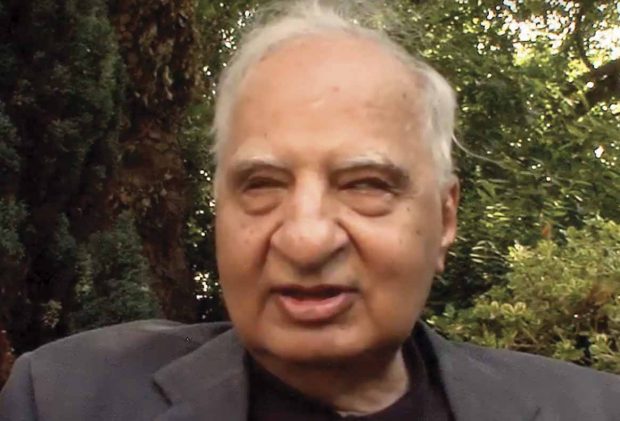
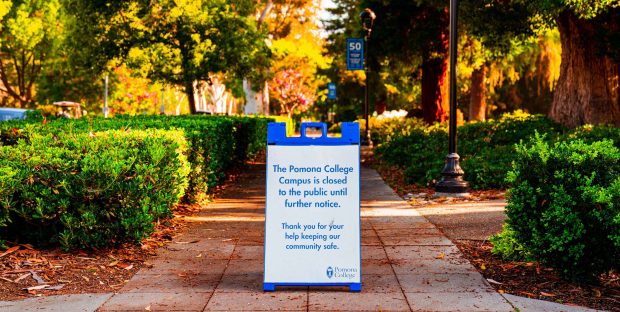
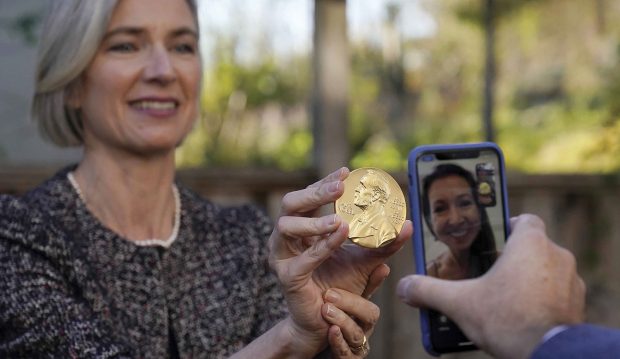
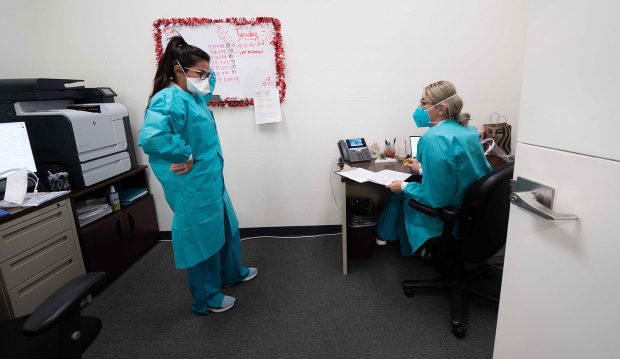
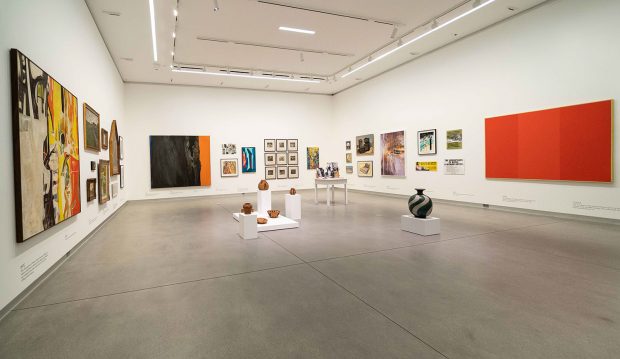
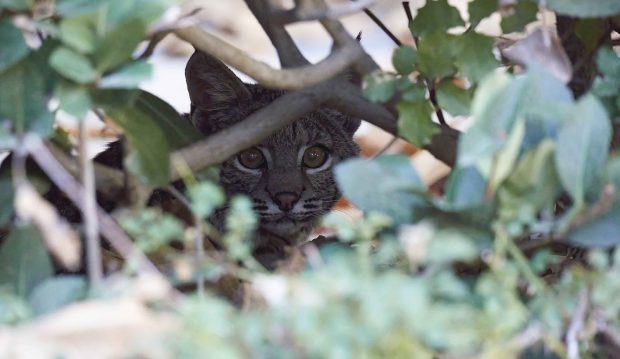
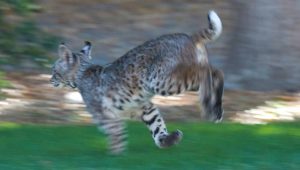 Nice Kitty — No, that’s not someone’s pet tabby hiding in the brush near Bridges Auditorium or scampering across the campus green. It’s a bobcat, another example of the local wildlife that has found its way onto the Pomona College campus during the College’s yearlong closure. The photos were taken by a local resident, 12-year-old David Lonardi, who spotted the bobcat while trying out his new camera near campus.
Nice Kitty — No, that’s not someone’s pet tabby hiding in the brush near Bridges Auditorium or scampering across the campus green. It’s a bobcat, another example of the local wildlife that has found its way onto the Pomona College campus during the College’s yearlong closure. The photos were taken by a local resident, 12-year-old David Lonardi, who spotted the bobcat while trying out his new camera near campus.

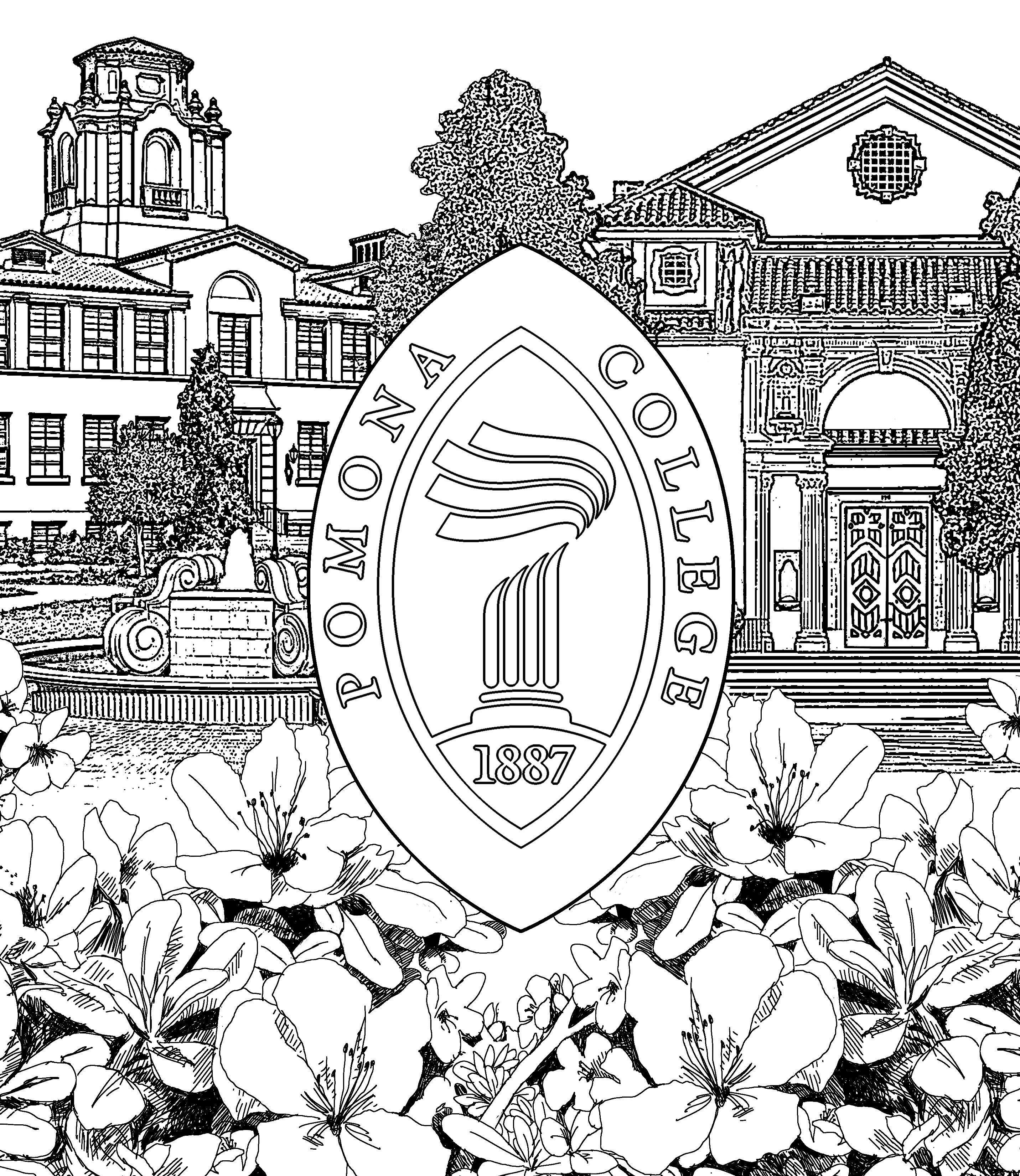
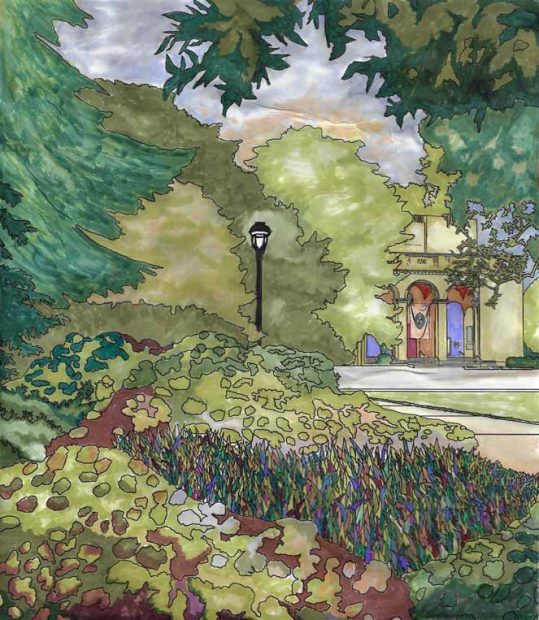
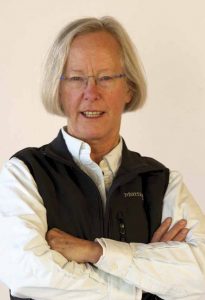 Cathy Corison ’75 was the first woman winemaker-proprietor in the Napa Valley, where she continues to produce handcrafted wines without compromise. Her grapes are sourced from some of the finest vineyards in the Napa Valley, all located on classic benchland between Rutherford and St. Helena. Corison’s vineyards are certified Napa Green. She has farmed organically for more than 25 years, with sustainability as a core value. She founded Corison Winery in 1987, guided by her belief that winemaking and wine appreciation are a timeless, creative celebration of life.
Cathy Corison ’75 was the first woman winemaker-proprietor in the Napa Valley, where she continues to produce handcrafted wines without compromise. Her grapes are sourced from some of the finest vineyards in the Napa Valley, all located on classic benchland between Rutherford and St. Helena. Corison’s vineyards are certified Napa Green. She has farmed organically for more than 25 years, with sustainability as a core value. She founded Corison Winery in 1987, guided by her belief that winemaking and wine appreciation are a timeless, creative celebration of life.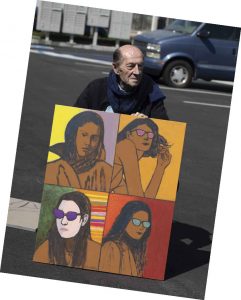 James Strombotne ’56 is a painter whose work has been featured in more than 100 one-man shows, with 14 retrospectives: four in New York City, 22 in Los Angeles, and others in San Francisco, Washington D.C., Santa Barbara, Newport Beach and Santa Fe, New Mexico, among other venues. His work has also been included in most major group shows in America and can be found in the permanent collections of museums across the United States. He is a professor emeritus at UC Riverside following his retirement in 2005 after 40 years of teaching.
James Strombotne ’56 is a painter whose work has been featured in more than 100 one-man shows, with 14 retrospectives: four in New York City, 22 in Los Angeles, and others in San Francisco, Washington D.C., Santa Barbara, Newport Beach and Santa Fe, New Mexico, among other venues. His work has also been included in most major group shows in America and can be found in the permanent collections of museums across the United States. He is a professor emeritus at UC Riverside following his retirement in 2005 after 40 years of teaching.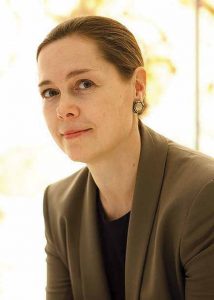 Martina Vandenberg ’90 is the founder and president of The Human Trafficking Legal Center, which she established in 2012 with support from the Open Society Foundations Fellowship Program. For more than two decades, she has worked to fight human trafficking, forced labor and violence against women and establish that rape is a war crime. Vandenberg has trained more than 4,000 pro bono attorneys nationwide to handle human trafficking matters. She has testified before multiple House and Senate Committees, gave the keynote address at the first NATO ambassadorial-level conference on human trafficking in Brussels and currently co-chairs the D.C. Human Trafficking Task Force’s Forced Labor Subcommittee.
Martina Vandenberg ’90 is the founder and president of The Human Trafficking Legal Center, which she established in 2012 with support from the Open Society Foundations Fellowship Program. For more than two decades, she has worked to fight human trafficking, forced labor and violence against women and establish that rape is a war crime. Vandenberg has trained more than 4,000 pro bono attorneys nationwide to handle human trafficking matters. She has testified before multiple House and Senate Committees, gave the keynote address at the first NATO ambassadorial-level conference on human trafficking in Brussels and currently co-chairs the D.C. Human Trafficking Task Force’s Forced Labor Subcommittee.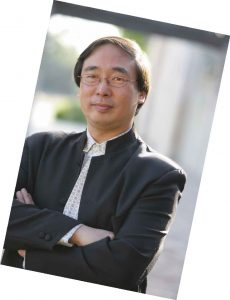 Nathan Wang ’79 is one of the most successful composers in Hollywood and Asian cinema. Prolific and versatile, he has written music for Jackie Chan movies, Steven Spielberg documentaries and Disney, DreamWorks, Warner Bros. and Sony Pictures Studios’ films. His compositions have been performed by the Los Angeles Philharmonic, Shanghai Philharmonic, San Francisco Symphony, Los Angeles Opera and the Chicago Symphony Orchestra. He received a Singapore Grammy for Best Arrangement of a Song and an Emmy for the award-winning film Reefer Madness. Wang is an associate professor of film scoring at Beijing University.
Nathan Wang ’79 is one of the most successful composers in Hollywood and Asian cinema. Prolific and versatile, he has written music for Jackie Chan movies, Steven Spielberg documentaries and Disney, DreamWorks, Warner Bros. and Sony Pictures Studios’ films. His compositions have been performed by the Los Angeles Philharmonic, Shanghai Philharmonic, San Francisco Symphony, Los Angeles Opera and the Chicago Symphony Orchestra. He received a Singapore Grammy for Best Arrangement of a Song and an Emmy for the award-winning film Reefer Madness. Wang is an associate professor of film scoring at Beijing University.